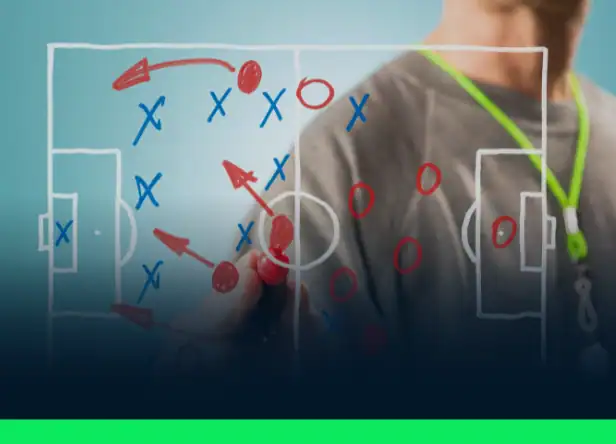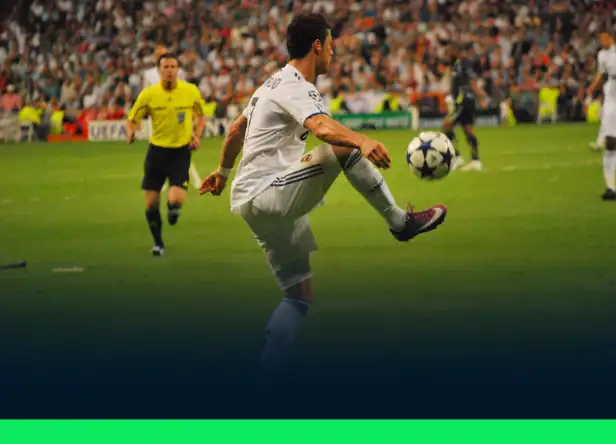Mental training in soccer has evolved from an overlooked aspect of the game to a cornerstone of elite performance. Once dismissed as peripheral to physical and technical skills, psychological preparation now stands alongside tactical awareness and fitness conditioning as an essential component of player development. The most exceptional players throughout soccer history have consistently demonstrated one defining trait: mental resilience under pressure.
What Is Mental Training in Soccer? Understanding Mental Training in Soccer
Mental training in soccer encompasses the systematic development of psychological skills that enhance performance on the pitch. While physical attributes, technical ability, and tactical understanding form the foundation of soccer excellence, mental processes such as concentration, stress management, resilience, and confidence represent equally critical components of peak performance.
The psychological demands of soccer require players to process information rapidly, make split-second decisions, and maintain focus amid intense pressure. Elite soccer players demonstrate heightened planning and memory capacities, enhanced executive functions (particularly cognitive flexibility), and superior decision-making skills compared to recreational players.
Pre-match anxiety and stress often stem from negative projections about potential match outcomes. These psychological barriers can significantly impair reaction times, concentration, self-confidence, and motivation. Mental training addresses these challenges by teaching players to remain present-focused and resist the influence of counterproductive thoughts.
Learning from Setbacks and Building Resilience
Soccer inevitably presents moments of failure—mislaid passes at crucial junctures, penalty misses, or shots that narrowly miss the target. Many players struggle with feelings of responsibility for poor team results or fear of disappointing teammates and supporters.
Mental training reframes these setbacks as learning opportunities rather than defeats. This psychological shift builds mental toughness, which research identifies as the most significant mental process affecting player performance. Mental toughness encompasses the ability to remain focused, composed, and confident in stressful situations while coping effectively with challenging circumstances.
Professional players recognize that mental toughness develops through age and experience, with veteran players typically handling adversity more effectively than younger athletes. However, structured mental training can accelerate this development process across all age groups.
Mastering Concentration and Attentional Control
Soccer demands exceptional concentration levels throughout matches and training sessions. Players must continuously monitor teammate and opponent movements, decode opposing tactical systems, maintain awareness of their own team’s strategy, and react instantaneously during active play. Effective attentional control requires players to:
- Maintain present-moment awareness
- Filter out crowd noise and external distractions
- Monitor positioning and spatial relationships
- Identify opponent tactical patterns
- Remain alert to match flow dynamics
Research demonstrates that selective attention, the ability to focus on relevant information while ignoring irrelevant stimuli, represents a crucial skill for soccer performance. Players must develop the capacity to process pertinent match information while dismissing distracting thoughts about previous mistakes or future outcomes.
Mental Training Throughout the Season
Mental training extends beyond match-day preparation to encompass season-long performance optimization. During specific periods, such as winter breaks, coaches and support staff focus on maintaining players’ psychological resilience while balancing recovery and preparation phases.
These periods present opportunities to strengthen team cohesion and develop mental leadership before entering the season’s most demanding phases. Consistent mental skills training helps players maintain sharpness and motivation throughout extended competitive campaigns.
Evidence-Based Mental Training Techniques
To master the psychological aspects of soccer and get the most out of them, there are several proven mental training exercises:
Goal Setting
Establishing personal, realistic objectives helps players manage stress and focus on measurable improvement. Rather than pursuing vague or externally dependent goals like “winning matches,” players should concentrate on specific, individual targets such as “improving first-touch accuracy” or “increasing successful tackle percentage”.
Effective goal setting follows established psychological principles:
- Specific and measurable outcomes
- Achievable within current skill levels
- Relevant to position and role requirements
- Time-bound with clear deadlines
Meditation and Mindfulness
Research consistently demonstrates that athletes practicing meditation show improved performance outcomes. Meditation techniques focus on breathing control and mindfulness, helping players enhance concentration and reduce anxiety levels.
While initially challenging for beginners, regular meditation practice becomes an essential component of comprehensive mental training routines. Mindfulness teaches players to maintain present-moment awareness rather than worrying about match outcomes or dwelling on missed opportunities.
Visualization and Mental Imagery
Visualization—employed extensively by elite athletes—involves mentally rehearsing successful actions or complete match scenarios. Through detailed mental practice, including emotional and sensory recreation, players build confidence and eliminate psychological barriers.
Effective visualization requires recreating:
- Physical sensations from successful performances
- Emotional states associated with peak moments
- Environmental details from competitive settings
- Technical execution of specific skills
Positive Self-Talk
Internal dialogue significantly impacts player motivation and performance outcomes. Constructive self-communication helps maintain focus while preventing self-sabotage. For example, stating “I will focus on my first touch to maximize effectiveness” proves far more beneficial than negative self-criticism.
Positive self-talk strategies include:
- Performance cues for technical execution
- Motivational statements for maintaining effort
- Instructional phrases for tactical reminders
- Confidence affirmations for psychological support
Pre-Match and Half-Time Psychological Preparation
Team talks given by the coach—or sometimes by a team leader—before a match, at halftime, and even after the game, are crucial moments for motivation, strategy adjustments, and boosting morale. A powerful halftime talk can completely shift the momentum of a game.
Becoming a Mental Training Coach in Soccer: Professional Mental Training Development
The role of sports psychology specialists continues expanding within professional soccer. Mental training has evolved from being misunderstood to recognition as a fundamental factor in soccer success. Previously, seeking mental coaching assistance might have suggested psychological weakness; today, it represents intelligent, professional development.
Certified mental training coaches learn to:
- Prepare players psychologically before and after competition
- Enhance individual and team motivation
- Manage relationships between players, coaches, and support staff
- Teach stress management techniques
- Develop mental success strategies
- Handle conflict and emotional challenges within team environments
Professional sports psychologists working with soccer teams focus on three critical areas: arousal regulation, mental toughness, and self-confidence. These mental skills prove essential for consistent high-level performance and effective coping with the intense pressures of elite competition.
Advanced Mental Training Applications
Emotional Regulation
Managing emotions during competition represents a key differentiator between good and exceptional players. Some players perform better with heightened emotional states, while others require calm composure for optimal performance. Understanding individual emotional patterns enables targeted mental training interventions.
Confidence Development
Soccer confidence exists in two primary forms: reactive confidence (dependent on recent performance) and proactive confidence (maintained regardless of immediate circumstances). Elite players develop proactive confidence through consistent mental training, maintaining self-belief despite temporary setbacks or poor preparation phases.
Cognitive Flexibility
Elite soccer players demonstrate superior cognitive flexibility—the ability to adapt thinking patterns and responses to changing match situations. This mental attribute contributes significantly to improved decision-making speed and tactical adaptability during competition.
Mental Training in Soccer: Conclusion
Mental training in soccer represents an essential component of comprehensive player development rather than an optional enhancement. From managing stress and learning from setbacks to mastering concentration and building unshakeable confidence, psychological preparation empowers players to achieve peak performance consistently. Whether pursuing individual improvement or guiding team development, mastering soccer’s mental dimensions provides the competitive edge necessary for sustained success at all levels of the game.





